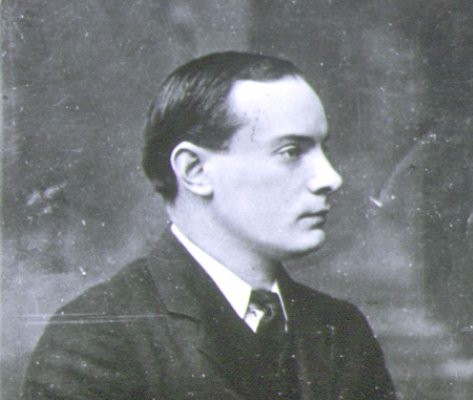By Olive Morrin, Special Collections & Archives
Maynooth University Library holds a copy of Diarmuíd Ó Donnabháin Rossa 1831-1915: souvenir of public funeral to Glasnevin Cemetery Dublin, August 1st 1915 which includes commemorative essays and poems by P.H. Pearse, Thomas MacDonagh, Arthur Griffith, James Connolly, Brian na Banban and others.

Image from Wikimedia Commons
Jeremiah O’Donovan Rossa was a prominent Fenian leader and member of the Irish Republican Brotherhood. He arguably became best known in death for the graveside oration given by Pádraig Pearse on 1st August 1915. This year marks the hundred anniversary of Pearse’s oration which was a harbinger of what was to come nine months later in The Easter Rising.
Rossa died on 29th June 1915 in New York. John Devoy cabled Tom Clarke in Dublin to ask what should be done. Clarke realised the propaganda value of his funeral in Ireland as a means of galvanising republican support for the Rising whose plans were already well advanced. Tom Clarke cabled back “Send his body home at once”. Clarke and MacDonagh immediately began planning a huge public funeral and Clarke chose Pearse to deliver the graveside oration with the instructions “make it as hot as hell”.

Image from Wikimedia Commons
Jeremiah O’Donovan Rossa was born in a small village called Reenascreena near Rosscarbery, Co. Cork. He was the son of a tenant farmer and experienced the horrors of the Irish Famine which badly affected Skibbereen and West Cork. His father died of an illness in 1847 due to severe malnutrition. As a teenager he moved to Skibbereen to work in his cousin’s shop. In 1856 he founded the Phoenix National and Literary Society whose innocuous title obscured its aim of “the liberation of Ireland by force of arms”. He was an implacable republican incapable of compromise who in his long life never deviated from his radical views. For him Home Rule was not an option so it is little wonder that Pearse and his associates would see themselves as successors to his brand of republicanism.
O’Donovan Rossa was imprisoned in 1865 for plotting an uprising and for his activities as manager of the nationalist newspaper The Irish People. He was a defiant prisoner who suffered many hardships because of his refusal to submit to prison rules which he later wrote about in his 1874 book Prison Life. He was released from prison in 1871 following a public inquiry into prison conditions . A requirement of his release was to emigrate and Rossa chose to go to New York. There he continued his efforts against British rule in Ireland and established a fund called the “Skirmishing Fund” which was intended to fund bombing and terror campaigns.
O’Donovan Rossa was married three times and had a total of eighteen children. In his final years he was confined to a hospital and died on the 29th June 1915. His body arrived in the Pro-Cathedral on 27th July where Requiem Mass was celebrated the following morning. His remains were then moved to lie in state in City Hall until Sunday 1st August when huge crowds lined the route as the funeral cortege proceeded to Glasnevin Cemetery for burial. Pearse’s speech is one of the most famous pieces of Irish oratory and concludes with the following words:
“They think that they have purchased half of us and intimidated the other half. They think that they have foreseen everything, think that they have provided against everything; but the fools, the fools, the fools! – they have left us our Fenian dead, and, while Ireland holds these graves, Ireland unfree shall never be at peace.”
References:
Diarmuíd Ó Donnabháin Rossa 1831-1915: souvenir of public funeral to Glasnevin Cemetery Dublin, August 1st 1915.